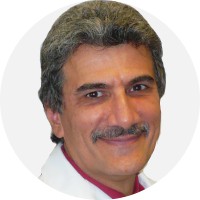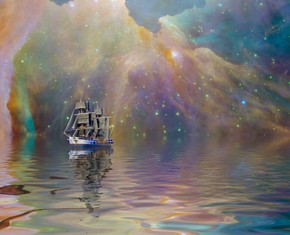The views expressed in our content reflect individual perspectives and do not represent the authoritative views of the Baha'i Faith.
Why do we age? That’s one of the hardest and most complex questions in all biology.
In fact, the question carries vast implications for the physical and spiritual health of the individual, as well as the proper functioning of society.
We know that all humans age. You’ve probably heard about the biochemical discovery of the enzyme Telomerase, which regulates the growth of the human cell and may play an important role in aging. You may also be familiar with the abnormal aging pattern seen in the people afflicted with Progeria, when the entire process of aging accelerates, so that a seven year old may have the aged body of a 60 year old. These things make us realize that aging is a complex and little-understood process, indeed.
One scientific idea holds that humans have a maximum life span—that regardless of how well a person takes care of their physical body, a pre-programmed biological death time arrives at about 125 years of age, even for the person in perfect health. Odd, very odd! Of course, this shouldn’t surprise us, because we see this pattern in many biological entities such as trees, plants, bacteria, and bees. The aging process of a single cell is also part of this continuum.
Perhaps that’s why older people, more so than any other segment of the populace, gradually become keenly aware of their limited life expectancy. This means they’re often more in tune with the spiritual aspects of life, and more inclined to accept the existence of an afterlife.
That concept of eternal life and the world beyond has been a component of the human psyche for millennia. As we get older, we have more to look back on reflectively, more life experience to contemplate. We may begin to look, as the Baha’i teachings suggest, for the “river of everlasting life:”
Thou seest, O my Lord, this wretched creature knocking at the door of Thy grace, and this evanescent soul seeking the river of everlasting life from the hands of Thy bounty. Thine is the command at all times, O Thou Who art the Lord of all names; and mine is resignation and willing submission to Thy will, O Creator of the heavens! – Baha’u’llah, Baha’i Prayers, pp. 10-11.
You might not have it now, but chances are, as you age, you’ll develop the desire for a spiritual and eternal life. Meanwhile, how do we deal, here in this material world, with our rapidly-increasing elderly population? How do societies and cultures respond to the fact that people are living longer than they ever have before?
The aging of a human community has economic, social and political implications and intricacies that vary from place to place. Looking at the socioeconomic issues related to agedness, you should know that several international bodies have looked into this matter. The first UN World Assembly on Ageing took place in 1982, and the Baha’i International Community was involved as an NGO, serving on the Executive Board in 1981-82. The BIC offered two recommendations to the organizers of the Forum:
(1) That there must be full integration of the aging in the human community, since the community should be an extended family in which everyone, of any age, is an essential part, and not only allowed, but encouraged, to make the fullest possible contribution to the wellbeing of the whole; and
(2) That in considering the needs of the aging in the process of development we must take into account the wholeness of the human being—the moral and spiritual dimension, besides his emotional, intellectual, and physical nature—when discussing the special contributions of older persons to development and their sharing in the resulting benefits. – Baha’i World, Volume 18, p. 397.
The grand final theory on aging, yet to be devised, will probably need to take into account genetic aspects, environmental factors, hormonal influence and metabolic rate, among several other determinants. Most important of all, though, many scientists and researchers now believe the human body has an internal mechanism that regulates the pre-programmed death of the organism, probably transmitted via a grand biological clock that sets a limit on our stay here on Earth. We have much to learn about this process, but we do know that it takes place as a result of some underlying, built-in biological control and program at the cellular level.
But age, as we know, happens to the physical aspects of the body and the mind. The Baha’i teachings remind us that our inner reality, the soul itself, is eternal:
The whole physical creation is perishable. These material bodies are composed of atoms; when these atoms begin to separate decomposition sets in, then comes what we call death. This composition of atoms, which constitutes the body or mortal element of any created being, is temporary. When the power of attraction, which holds these atoms together, is withdrawn, the body, as such, ceases to exist.
With the soul it is different. The soul is not a combination of elements, it is not composed of many atoms, it is of one indivisible substance and therefore eternal. It is entirely out of the order of the physical creation; it is immortal! – Abdu’l-Baha, Paris Talks, pp. 90-91.
















Comments
Sign in or create an account
Continue with Googleor